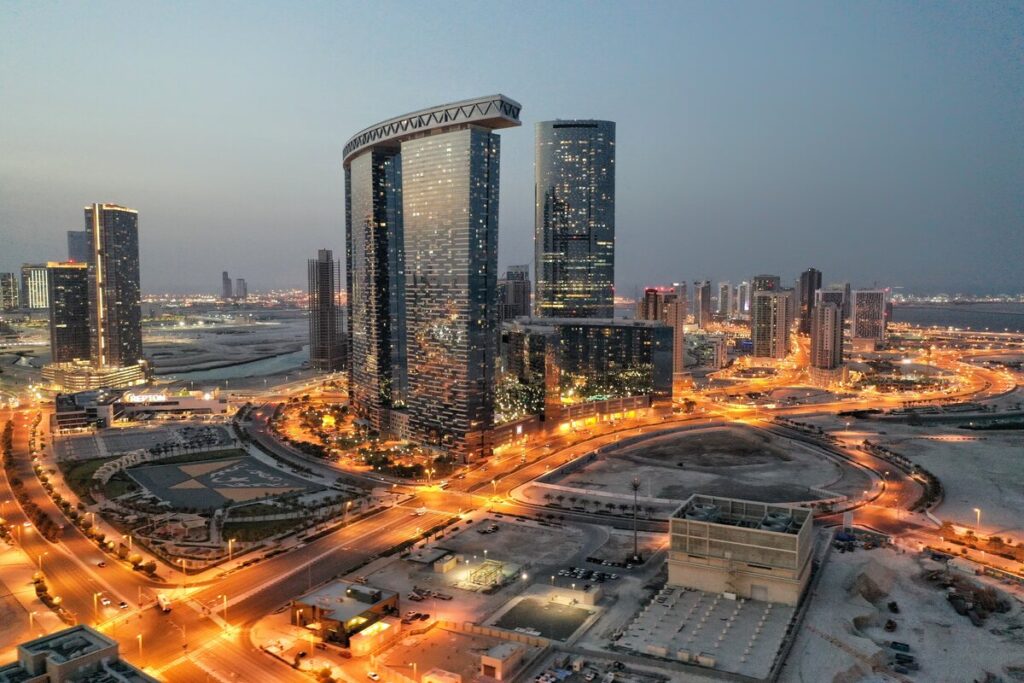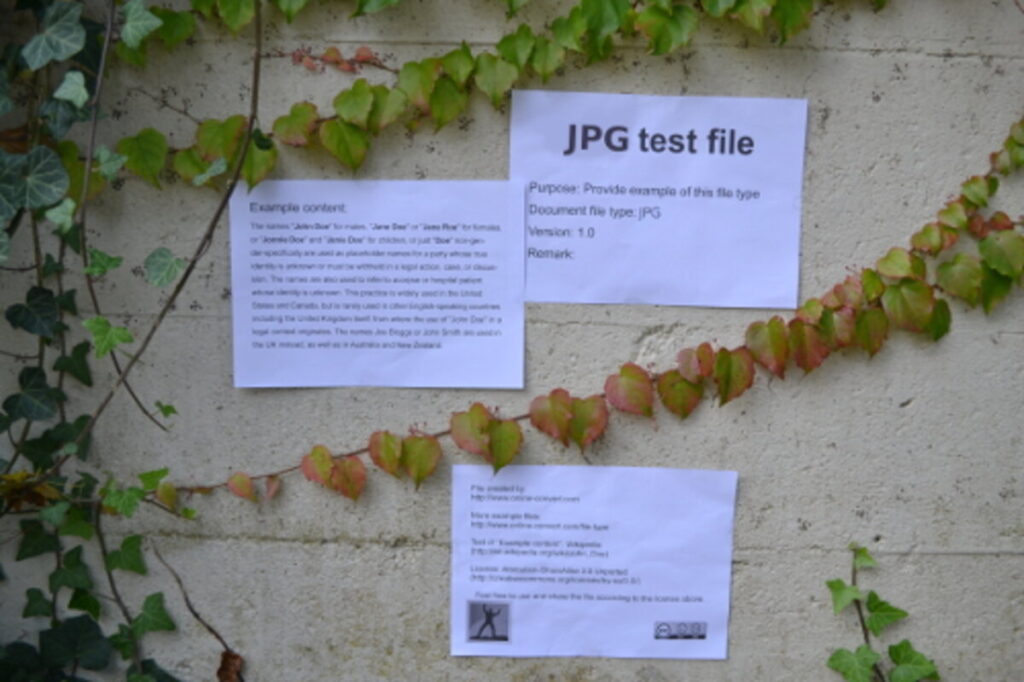
Making Smart Investments in Abu Dhabi, UAE: Tips from Financial Experts

Abu Dhabi, as a flourishing economic hub, offers an abundance of investment opportunities across various sectors. However, navigating this landscape necessitates a discerning approach. Smart investments not only maximize potential returns but also mitigate risks. With the right guidance and strategic insights, investors can capitalize on the city’s thriving real estate, energy, technology, and hospitality sectors, among others.
Trust Accounts Management is poised to be your trusted partner in this journey, providing the expertise needed to make well-informed investment decisions that align with your financial aspirations and risk tolerance levels. Through prudent investments, individuals and businesses can not only safeguard their financial well-being but also position themselves for long-term success in Abu Dhabi’s dynamic market.
In this blog, we aim to illuminate the diverse avenues available for prudent investments in Abu Dhabi, shedding light on key sectors and strategies to empower individuals and businesses alike. Through our tailored approach, we seek to not only safeguard our clients’ financial interests but also catalyze the growth and prosperity of their ventures.
Understanding the Abu Dhabi Investment Landscape
With a robust and diversified economy, Abu Dhabi offers a fertile ground for investors seeking stability and growth. The emirate’s economy is anchored by its vast oil reserves, but in recent years, it has strategically shifted towards diversification, prioritizing sectors like finance, technology, and tourism. This prudent approach has not only bolstered resilience but has also opened up a myriad of investment opportunities across various industries.
Abu Dhabi’s economy and market trends
Following are the key aspects that define Abu Dhabi’s dynamic investment landscape:
- Oil and Gas Sector: Despite diversification efforts, Abu Dhabi remains a pivotal player in the global energy arena. The emirate boasts one of the world’s largest oil reserves, providing a solid foundation for its economy. Investors keen on energy-related ventures can explore partnerships, projects, and technologies that align with Abu Dhabi’s sustainable energy objectives.
- Finance and Banking: Abu Dhabi’s financial sector has seen remarkable growth, underpinned by a stable regulatory environment and a strategic geographic location. The emirate is home to a range of international and local banks, investment firms, and financial institutions. Investors can explore opportunities in banking, asset management, fintech, and other financial services.
- Technology and Innovation: Abu Dhabi has made significant strides in nurturing a thriving tech ecosystem. Innovation hubs, research centers, and initiatives like Hub71 have propelled the emirate into the global tech spotlight. Investors looking to be part of the next wave of technological advancements can find promising startups, incubators, and innovation-driven projects.
- Real Estate and Infrastructure: The real estate market in Abu Dhabi continues to be a focal point for investment. Ongoing infrastructure projects, urban development, and a burgeoning demand for both commercial and residential spaces offer a diverse range of opportunities for real estate investors.
- Tourism and Hospitality: With its stunning coastline, cultural landmarks, and world-class amenities, Abu Dhabi has established itself as a premier tourist destination. The hospitality sector, including hotels, resorts, and leisure facilities, presents attractive investment prospects as the emirate continues to draw visitors from around the globe.
- Sustainability and Green Initiatives: Abu Dhabi is committed to sustainability and environmental conservation. Investments in renewable energy projects, sustainable technologies, and eco-friendly initiatives align with the emirate’s long-term vision for a greener future.
Understanding these facets of Abu Dhabi’s economy provides a solid foundation for making informed investment decisions.
Key sectors driving investment opportunities
The Abu Dhabi investment landscape offers a multitude of opportunities for savvy investors seeking to grow their wealth in a dynamic and rapidly evolving economy. These sectors not only reflect the region’s economic diversity but also showcase its commitment to innovation and sustainability.
Let’s explore each of these sectors in detail:
- Real Estate: Abu Dhabi’s real estate market has been a magnet for investors globally. With a thriving property market, the city offers various opportunities ranging from residential to commercial properties and ambitious development projects. Understanding the intricacies of this market is crucial for anyone looking to invest in the vibrant real estate sector.
- Energy and Infrastructure: As a significant player in the global energy arena, Abu Dhabi presents compelling investment prospects in the energy and infrastructure sectors. From pioneering renewable energy projects to substantial infrastructure developments, investors can capitalize on the region’s commitment to sustainable growth.
- Technology and Innovation: Abu Dhabi is fast emerging as a tech and innovation hub in the Middle East. With a growing startup ecosystem, government support, and a focus on cutting-edge technologies, this sector offers exciting prospects for those interested in technological advancements and entrepreneurship.
- Hospitality and Tourism: Abu Dhabi’s hospitality and tourism sector continues to thrive, thanks to its luxurious hotels, picturesque landscapes, and world-class attractions. Investors can explore opportunities in this sector, which is driven by a growing number of tourists and the city’s commitment to enhancing its tourism infrastructure.
- Financial Services: The financial services sector in Abu Dhabi plays a pivotal role in the region’s economic stability. Investors can explore diverse investment vehicles such as mutual funds, ETFs, fixed-income securities, and private equity, guided by the expertise of financial institutions operating in the emirate.
Each of these sectors presents its unique set of opportunities and challenges, and understanding them is essential for making informed and profitable investment decisions in Abu Dhabi.
Assessing Risk Tolerance and Investment Goals
Before embarking on any investment journey, it’s crucial to understand your risk tolerance and define your investment goals. These two elements lay the foundation for making informed and profitable investment decisions in Abu Dhabi’s dynamic market. Risk tolerance is the extent to which you can handle the ups and downs of the market without losing sleep, while investment goals provide direction and purpose to your financial endeavours.
Importance of defining risk tolerance:
- Minimizing Emotional Stress: Investing can be emotionally challenging, especially during market fluctuations. By assessing your risk tolerance, you can select investments that align with your comfort level, reducing the emotional stress associated with financial markets.
- Aligning with Financial Objectives: Your risk tolerance should match your financial objectives. Those with a higher risk tolerance may seek aggressive growth, while conservative investors may prioritize capital preservation. Defining your risk tolerance ensures your investments align with your goals.
- Balancing Risk and Reward: Understanding your risk tolerance enables you to strike a balance between risk and reward. Higher-risk investments may offer greater potential returns, but they also come with increased volatility. Conversely, lower-risk investments tend to be more stable but may offer lower returns.
- Avoiding Impulsive Decisions: Without a clear understanding of your risk tolerance, you might make impulsive investment decisions based on market hype or fear. Defining your risk tolerance helps you stay disciplined and avoid rash choices.
- Building a Diversified Portfolio: Diversification is a key risk management strategy. Knowing your risk tolerance allows you to diversify your investments across asset classes, reducing the impact of a single investment’s poor performance on your overall portfolio.
- Long-term Strategy: Your risk tolerance can evolve over time, but it’s essential to maintain a long-term perspective. By setting a risk tolerance that matches your comfort level and sticking to your investment plan, you increase your chances of achieving your financial objectives over the long haul.
In summary, understanding and defining your risk tolerance is a foundational step in the investment process. It empowers you to make choices that align with your financial goals, reduces emotional stress, and ensures a well-balanced portfolio that can weather the complexities of the Abu Dhabi investment landscape.
Identifying Short-Term and Long-Term Investment Goals

When it comes to making smart investments in Abu Dhabi, understanding your risk tolerance and setting clear investment goals are crucial steps in building a successful financial strategy. This process involves evaluating your comfort level with potential fluctuations in your investment portfolio and defining the timeline for achieving your financial objectives.
In this section, we will delve into the importance of distinguishing between short-term and long-term investment goals, each playing a unique role in shaping your investment approach.
- Short-Term Investment Goals: Short-term investment goals typically encompass financial milestones you aim to achieve within the next one to five years. These objectives may include saving for a down payment on a property, funding a major life event, or establishing an emergency fund. It’s essential to consider the liquidity of your investments for short-term goals, as you may need to access these funds relatively quickly.
- Long-Term Investment Goals: Long-term investment goals extend beyond five years and are focused on building wealth over an extended period. These objectives often involve retirement planning, creating a legacy for future generations, or achieving significant financial milestones. Long-term investments can afford a higher degree of risk, as they have more time to recover from market fluctuations. This allows for the inclusion of potentially higher-yield, but also more volatile, investment vehicles.
By distinguishing between short-term and long-term investment goals, you can tailor your investment strategy to align with your specific financial aspirations and timeline. This balanced approach ensures that you’re not only prepared for near-future expenses but also strategically positioned to secure your financial future in the long run.
Aligning investments with individual financial objectives
Investing without a clear sense of purpose can lead to haphazard decisions and missed opportunities. Therefore, it’s essential to align your investments with your individual financial objectives. This process involves identifying what you aim to achieve through your investments, whether it’s funding your retirement, purchasing a property, or generating passive income.
By having specific, measurable financial goals in mind, you can tailor your investment strategy to meet these objectives. For instance, if your goal is to retire comfortably in a certain number of years, you’ll need to allocate your investments in a way that maximizes returns while managing risk. On the other hand, if you’re saving for a down payment on a property, your investment approach may prioritize stability and liquidity.
Furthermore, regularly revisiting and reassessing your financial objectives is crucial as circumstances may change over time. Life events, economic shifts, and personal milestones can all impact your goals, necessitating adjustments to your investment strategy. Trust Accounts Management can assist you in this process, providing expert guidance in aligning your investments with your evolving financial objectives.
Diversification Strategies in Abu Dhabi
Diversification is a fundamental principle in the world of investment that involves spreading your investments across a range of assets to manage risk and optimize returns. In Abu Dhabi, a thriving and diverse economy, understanding diversification strategies is essential for making smart investment decisions. This section explores the concept of diversification and provides insights into how it can be effectively applied in the context of Abu Dhabi’s investment landscape.
What are the strategies of diversification?
Diversification is a strategy that aims to reduce the overall risk of an investment portfolio by spreading investments across different asset classes, industries, or geographic regions. The key idea behind diversification is to avoid putting all your financial eggs in one basket.
Here’s a breakdown of this concept:
- Asset Class Diversification: This involves allocating investments across different types of assets, such as stocks, bonds, real estate, and commodities. Each asset class carries its own level of risk and return potential. By diversifying across asset classes, investors can achieve a balanced mix that suits their risk tolerance and financial goals.
- Industry Diversification: Focusing on a specific industry or sector can expose your investments to concentrated risks. Diversifying across various industries helps mitigate the impact of adverse developments in a particular sector. For instance, in Abu Dhabi, diversifying between real estate, energy, technology, and hospitality sectors can provide a safety net against industry-specific fluctuations.
- Geographic Diversification: Investing in different geographic regions or countries can protect your portfolio from geopolitical risks and localized economic downturns. Abu Dhabi’s strategic location in the Middle East makes it an attractive hub for regional investments, but diversifying beyond its borders can provide global exposure and risk mitigation.
- Asset Diversification within Sectors: Even within a single sector, diversification can be achieved by investing in a variety of assets. For example, in the real estate sector in Abu Dhabi, diversifying between residential and commercial properties or between established and emerging developments can help manage risk.
- Time Horizon Diversification: Consider your investment horizon when diversifying. Short-term and long-term investments may require different strategies. Abu Dhabi offers opportunities for both, but diversifying your portfolio based on your time horizon is crucial for optimizing returns and managing risk.
In the diverse and dynamic investment landscape of Abu Dhabi, a well-planned diversification strategy can play a pivotal role in achieving your financial objectives while safeguarding your investments from unforeseen challenges.
Opportunities for diversification within Abu Dhabi’s market
- Real Estate Ventures: Abu Dhabi’s real estate market presents a compelling option for diversification. From luxurious residential properties to thriving commercial spaces and ambitious development projects, the real estate sector offers a broad spectrum of investment opportunities. Each segment of the market carries its own unique risk-return profile, allowing investors to tailor their real estate portfolio to match their risk tolerance and financial objectives.
- Energy and Infrastructure Investments: The energy and infrastructure sectors in Abu Dhabi have been pivotal drivers of economic growth. With the emirate’s significant involvement in renewable energy projects, robust infrastructure development, and a strong presence in the global oil and gas industry, investors can diversify their portfolios by tapping into these promising sectors. Each sub-sector within energy and infrastructure comes with its own set of potential rewards and associated risks.
- Tech and Innovation Initiatives: Abu Dhabi’s burgeoning technology ecosystem offers investors an exciting opportunity to participate in the innovation-driven economy. Start-up investments and participation in incubation programs are avenues for diversification, allowing investors to tap into the high-potential, high-risk world of technology ventures. Identifying and investing in promising tech sectors can be a strategic move for those looking to diversify their portfolios in this rapidly evolving domain.
- Hospitality and Tourism Ventures: The hospitality and tourism sector in Abu Dhabi has witnessed sustained growth, driven by an influx of tourists and a robust local demand for hospitality services. Investing in hotels, resorts, and tourism infrastructure presents an attractive opportunity for diversification. This sector is influenced by various factors, including global travel trends, making it essential for investors to conduct thorough market research before making investment decisions.
- Financial Services and Investment Products: Abu Dhabi’s financial sector offers a range of investment vehicles and products, catering to different risk appetites and investment horizons. From mutual funds and exchange-traded funds (ETFs) to fixed-income securities and private equity, investors can diversify their portfolios within the financial services domain. Each of these options comes with its own set of risk-return characteristics, allowing investors to craft a diversified approach to wealth accumulation.
By exploring these diverse investment opportunities within Abu Dhabi, investors can construct portfolios that not only balance risk but also leverage the potential for attractive returns. However, it’s crucial to approach diversification with a clear understanding of individual risk tolerance and investment objectives. Additionally, seeking professional advice from financial experts, like Trust Accounts Management, can be invaluable in formulating a robust diversification strategy tailored to individual financial goals.
How do you manage risk with diversification?
Diversification is more than just scattering investments; it’s about crafting a balanced portfolio that leverages different asset classes to optimize risk and reward. In Abu Dhabi, this dynamic is especially crucial due to the myriad opportunities available across sectors. Let’s break down the key components of this strategy:
- Asset Allocation: The first step in diversification involves allocating investments across different asset classes such as equities, real estate, bonds, and alternative investments. Each class carries its own risk profile and potential for returns. By spreading investments, one can cushion against market fluctuations within a particular sector.
- Geographic Diversification: Beyond varying asset types, it’s prudent to explore opportunities in different regions. Abu Dhabi’s position as a global financial hub presents a plethora of international investment options. This not only taps into diverse markets but also hedges against region-specific economic shifts.
- Sectoral Diversification: Abu Dhabi’s economy boasts a multifaceted landscape, from real estate and energy to technology and finance. By spreading investments across these sectors, an investor can mitigate the risk associated with economic fluctuations affecting a specific industry.
- Risk Tolerance Alignment: Diversification should be tailored to an individual’s risk tolerance and investment horizon. A conservative investor might lean towards a heavier allocation in stable assets like bonds, while an aggressive investor may tilt towards growth-oriented equities.
- Regular Rebalancing: Markets are dynamic, and so are the fortunes of various sectors. Regularly revisiting and rebalancing a diversified portfolio is crucial to maintaining the desired risk-return equilibrium. It ensures that the allocation remains aligned with the investor’s goals and market conditions.
- Alternative Investments: In Abu Dhabi, alternative investments like private equity, venture capital, and real assets offer unique opportunities for diversification. These assets often have low correlation with traditional markets, providing an additional layer of risk mitigation.
By weaving these elements together, a diversified portfolio in Abu Dhabi can effectively spread risk while optimizing returns. It’s a strategy that aligns with the city’s dynamic economic environment, offering investors a robust framework for intelligent and balanced investments.
Real Estate Investments in Abu Dhabi

Abu Dhabi’s real estate market stands as a beacon of opportunity in the UAE, offering a diverse range of investment options for both local and international investors. With a strategic location, a robust economy, and a stable political environment, Abu Dhabi has become a magnet for real estate ventures.
The real estate sector in Abu Dhabi is characterized by steady growth, driven by factors such as a burgeoning population, increasing tourism, and ongoing infrastructure development. Understanding the market dynamics is crucial for any prospective investor. Here are the key elements that define the real estate landscape in Abu Dhabi:
- Market Trends and Growth Patterns: Abu Dhabi’s real estate market has exhibited notable resilience and growth over recent years. An analysis of market trends reveals a consistent upward trajectory in property prices and rental rates. This is attributed to factors like a surge in demand for housing due to population growth, a flourishing tourism sector, and the continuous expansion of key infrastructure projects.
- Regulatory Framework: The Abu Dhabi government has implemented a robust regulatory framework to govern real estate transactions. This framework outlines the legal processes and requirements for property ownership, leasing, and development. It is essential for investors to familiarize themselves with these regulations, ensuring compliance and a smooth investment process. Additionally, understanding property ownership regulations for foreign investors is paramount for international stakeholders.
- Types of Real Estate Investments: Abu Dhabi’s real estate market offers a diverse array of investment opportunities, spanning residential, commercial, and mixed-use properties. Each category presents unique benefits and considerations. Residential properties, for instance, cater to the housing needs of the city’s growing population, while commercial spaces hold potential for lucrative rental yields. Mixed-use properties offer a combination of residential and commercial spaces, providing a balanced investment approach.
- Noteworthy Developments and Projects: The skyline of Abu Dhabi is constantly evolving with the introduction of ambitious real estate developments and mega-projects. These ventures have a transformative impact on the city’s landscape, often influencing property values and demand in their respective areas. Familiarizing oneself with these projects and their projected impact is crucial for making informed investment decisions.
- Factors Influencing Investment Decisions: Several factors should be considered when evaluating potential real estate investments. Location plays a pivotal role, with proximity to amenities, transportation hubs, and key attractions being paramount. Additionally, market sentiment, economic indicators, and future growth prospects are critical considerations for making sound investment choices.
- Risks and Mitigation Strategies: Like any investment, real estate carries inherent risks. These may include market fluctuations, regulatory changes, or unforeseen events impacting property values. Implementing effective risk mitigation strategies, such as diversification across property types and locations, and staying informed about market trends, can help safeguard investments.
By delving into these aspects, investors can gain a comprehensive view of the real estate market in Abu Dhabi, enabling them to make informed decisions that align with their investment objectives and risk tolerance.
Types of Real Estate Investments Available
- Residential Properties: Investing in residential properties is a popular choice among individuals seeking a stable and reliable source of rental income. Abu Dhabi offers a range of options, from apartments in bustling urban centers to luxurious villas in serene suburbs. Understanding the local rental market dynamics and demand patterns is essential for selecting the right type of residential property. Factors such as location, amenities, and proximity to key facilities play a pivotal role in determining the potential returns on investment. Additionally, considering the city’s evolving demographics and lifestyle preferences can guide investors in making strategic decisions in the residential real estate sector.
- Commercial Properties: Abu Dhabi’s thriving business landscape provides excellent opportunities for investors interested in commercial properties. This category encompasses office spaces, retail outlets, warehouses, and other non-residential spaces. The choice between these options depends on factors like the investor’s risk appetite, investment horizon, and familiarity with the specific market segment. Commercial properties often yield higher rental returns compared to residential properties, but they may also involve different leasing dynamics and management requirements. Understanding the intricacies of the commercial real estate market is essential for maximizing the potential of such investments.
- Development Projects: Participating in development projects is a distinctive approach to real estate investment, offering the potential for significant capital appreciation. These projects encompass everything from land acquisition and planning to construction and marketing of new developments. Investors in development projects play a crucial role in shaping Abu Dhabi’s urban landscape and meeting the growing demand for modern infrastructure. However, this type of investment often requires a deeper level of due diligence, including assessments of market demand, regulatory compliance, and project feasibility. It’s an exciting but complex avenue that can yield substantial rewards for those willing to navigate its challenges.
What should I keep in mind before investing in real estate?
- Market Trends and Demand: The first and foremost factor to contemplate is the prevailing market trends and demand for real estate in Abu Dhabi. This involves studying factors such as population growth, urban development plans, and the overall economic outlook of the region. For instance, emerging residential areas or upcoming commercial zones might offer promising investment opportunities. A thorough market analysis is indispensable in identifying areas with potential for appreciation and rental yields.
- Legal and Regulatory Framework: Navigating the legal landscape is paramount in any real estate venture. Familiarize yourself with the local laws and regulations governing property ownership and transactions. Understand the process of acquiring, transferring, and selling property in Abu Dhabi. This may include considerations like zoning laws, land ownership restrictions, and taxation policies. Engaging legal counsel with expertise in local real estate matters is highly recommended to ensure compliance with all legal requirements.
- Property Condition and Maintenance: The physical state of a property plays a pivotal role in its potential for returns. Before making an investment, conduct a thorough inspection to assess the condition of the property. Factor in any necessary repairs, renovations, or maintenance work that may be required. Consider not only the initial investment but also the ongoing costs of upkeep to ensure the property remains attractive to tenants or potential buyers.
- Location and Accessibility: The adage “location, location, location” holds true in real estate. The location of a property significantly influences its desirability and potential for appreciation. Consider proximity to amenities, transportation hubs, educational institutions, and commercial centers. Additionally, assess the accessibility and ease of commuting to and from the property, as this can be a crucial factor for potential tenants or buyers.
- Return on Investment (ROI) Analysis: A comprehensive ROI analysis is vital to gauge the potential profitability of the investment. This involves evaluating both the rental income and potential appreciation of the property over time. Consider factors such as rental yields, expected property value appreciation, and the time horizon of your investment. It’s advisable to work with financial experts who can provide accurate projections based on market data and trends.
- Risk Mitigation Strategies: Every investment carries a level of risk, and real estate is no exception. It’s prudent to have contingency plans in place to mitigate potential risks. This may involve strategies like diversifying your real estate portfolio, investing in established neighborhoods, or exploring options for property insurance. Being prepared for unforeseen circumstances is a crucial aspect of prudent real estate investment.
By carefully considering these factors, you can make well-informed decisions when it comes to real estate investments in Abu Dhabi, ensuring your ventures are poised for success and long-term growth.
Energy and Infrastructure Opportunities.

Abu Dhabi stands as a cornerstone in the global energy landscape, playing a pivotal role in shaping the industry’s future. With its strategic location and abundant natural resources, the emirate has emerged as a leading force in both conventional and renewable energy sectors.
Abu Dhabi’s role in the global energy sector

Abu Dhabi has long been recognized as a powerhouse in the global energy market. Its vast reserves of oil and gas have propelled it to the forefront of the industry, contributing significantly to the world’s energy supply. Moreover, the emirate has been actively diversifying its energy portfolio, venturing into renewable sources like solar and wind power. This forward-thinking approach positions Abu Dhabi as a key player not only in traditional energy markets but also in the transition towards a sustainable future.
Investment avenues in energy and infrastructure
- Renewable energy projects: Abu Dhabi’s commitment to sustainable practices is evident in its ambitious renewable energy initiatives. The emirate boasts one of the largest concentrated solar power plants, the Noor Abu Dhabi, and hosts the headquarters of the International Renewable Energy Agency (IRENA). These endeavors signal a thriving ecosystem for renewable energy projects, offering a wide range of investment opportunities in solar, wind, and other clean energy sources.
- Infrastructure development: Abu Dhabi’s rapid economic growth necessitates substantial investments in infrastructure. The emirate’s infrastructure projects extend beyond traditional transportation and utilities, encompassing cutting-edge smart city initiatives. Investors can tap into this burgeoning sector through ventures in roads, bridges, airports, telecommunications, and other critical infrastructure components, contributing to the region’s sustained progress.
- Oil and Gas sector: While the global shift towards renewable energy sources is underway, Abu Dhabi continues to play a central role in the oil and gas industry. With ongoing exploration and development projects, there remain lucrative opportunities for investments in the exploration, production, and refining segments. Moreover, the emirate’s expertise in the industry ensures a stable and well-regulated environment for oil and gas investments.
Evaluating the sustainability of energy investments
In an era of heightened environmental awareness, the sustainability of energy investments is a paramount consideration. Abu Dhabi’s concerted efforts towards a greener future, coupled with stringent regulations and policies, provide a solid foundation for sustainable energy projects. Investors can find assurance in the emirate’s commitment to reducing carbon emissions and transitioning towards a more environmentally responsible energy sector. This commitment not only aligns with global sustainability goals but also presents a promising outlook for long-term investment returns.
Technology and Innovation Ventures

From the flourishing start-up culture to robust incubation programs, Abu Dhabi offers a fertile ground for investors seeking to be at the forefront of technological innovation.
Abu Dhabi’s growing tech ecosystem
Abu Dhabi’s tech ecosystem has experienced exponential growth in recent years, propelled by strategic investments and a forward-thinking regulatory environment. The city is home to numerous tech parks, innovation hubs, and research centers, acting as magnets for both local and international talent. These facilities provide an ideal environment for tech companies to thrive, collaborate, and push boundaries. Moreover, the government’s proactive role in fostering innovation further cements Abu Dhabi’s status as a tech powerhouse in the region.
Start-up investments and incubation programs
Abu Dhabi’s dedication to nurturing entrepreneurship is evident through a multitude of start-up incubators and accelerators. These programs offer invaluable resources, mentorship, and funding opportunities to budding entrepreneurs, creating an ecosystem that empowers innovative ideas to flourish. Through strategic investments in promising start-ups, investors can tap into the potential of groundbreaking technologies, positioning themselves at the forefront of disruptive advancements.
Identifying promising tech sectors for investment
Within Abu Dhabi’s burgeoning tech landscape, certain sectors stand out as particularly promising for investment. These include but are not limited to artificial intelligence, blockchain technology, cybersecurity, clean technology, and health tech. Each of these sectors presents unique opportunities for investors to not only capitalize on market growth but also contribute to solutions addressing global challenges. By identifying and strategically investing in these high-potential areas, investors can play a pivotal role in shaping the future of technology and innovation in Abu Dhabi.
Hospitality and Tourism Industry

The hospitality and tourism sector in Abu Dhabi stands as a vibrant pillar of its economy, offering a diverse range of opportunities for savvy investors. With a rich cultural heritage, stunning landscapes, and a thriving urban environment, Abu Dhabi has become a sought-after destination for travellers worldwide.
How big is the hospitality market in the UAE?

Abu Dhabi’s hospitality and tourism sector is a cornerstone of its economic vitality. The emirate boasts a wide array of attractions, from awe-inspiring architectural wonders like the Sheikh Zayed Grand Mosque to the pristine beaches along the Arabian Gulf. These elements, coupled with a diverse cultural scene and a reputation for luxury and opulence, make Abu Dhabi an alluring destination for both leisure and business travelers. As a result, the sector has experienced sustained growth, drawing substantial investments into hotels, resorts, and the broader tourism infrastructure.
Investment opportunities in hotels, resorts, and tourism infrastructure

- Hotels: Abu Dhabi’s burgeoning tourism industry has fueled a demand for high-quality accommodation. This presents a prime investment opportunity for those looking to venture into the hotel sector. From boutique establishments to internationally renowned chains, the market offers a spectrum of options catering to various traveler preferences.
- Resorts: The emirate’s coastal beauty and serene desert landscapes provide an ideal backdrop for luxurious resorts. Investing in this segment can yield substantial returns, especially when designed to cater to niche markets like wellness, eco-tourism, or adventure tourism.
- Tourism Infrastructure: Supporting the tourism ecosystem, infrastructure projects such as airports, transportation networks, and recreational facilities are essential. These investments not only enhance the visitor experience but also contribute significantly to the overall attractiveness of Abu Dhabi as a destination.
Market trends influencing the sector
Keeping a pulse on market trends is crucial for making informed investment decisions in the hospitality and tourism sector. In Abu Dhabi, several trends are currently shaping the industry:
- Sustainable Tourism: There is a growing emphasis on sustainable practices within the industry, aligning with global efforts towards eco-conscious travel. Investments in eco-friendly accommodations and initiatives that minimize environmental impact are gaining traction.
- Cultural Tourism: Abu Dhabi’s rich cultural heritage is increasingly becoming a focal point for tourists. Investments in cultural experiences, museums, and heritage sites can tap into this growing interest.
- Technology Integration: Innovations in technology, including smart room amenities, virtual reality tours, and digital concierge services, are enhancing the guest experience. Investors keen on staying ahead should consider opportunities that leverage these technological advancements.
- Health and Wellness Tourism: The demand for wellness-focused travel experiences is on the rise. Investments in spa resorts, wellness retreats, and fitness facilities cater to this evolving consumer preference.
By understanding these facets of the hospitality and tourism sector, investors can strategically position themselves to capitalize on the flourishing opportunities within Abu Dhabi’s dynamic market.
Financial Services and Investment Management
Financial services play a pivotal role in the economic landscape of Abu Dhabi. With a robust and dynamic financial sector, the emirate offers a wide array of investment vehicles and products to cater to diverse investor preferences.
Role of Financial Institutions in Abu Dhabi’s Economy
Financial institutions in Abu Dhabi form the backbone of its economic infrastructure. These entities encompass banks, investment firms, insurance companies, and other financial intermediaries. They facilitate the flow of capital, provide funding for businesses and projects, and offer a range of financial products and services to individuals and corporations alike. The stability and effectiveness of these institutions are critical for maintaining a thriving economy and attracting global investments.
Investment Vehicles and Products Available

It’s important for investors to carefully consider their financial goals, risk tolerance, and investment horizon when selecting which vehicles and products to incorporate into their portfolio. Diversification across different types of investments can help spread risk and potentially enhance overall returns. Consulting with a financial advisor or doing thorough research before making investment decisions is highly recommended.
What are investment products?

Investment vehicles and products refer to various financial instruments or methods through which individuals and entities can invest their money with the expectation of generating a return or profit over time. These vehicles and products are designed to cater to different risk appetites, investment objectives, and time horizons.
- Mutual Funds: Mutual funds are collective investment vehicles that pool money from various investors to invest in a diversified portfolio of stocks, bonds, or other securities. These funds are managed by professional fund managers, who aim to achieve specific investment objectives. In Abu Dhabi, a wide range of mutual funds are available, catering to different risk appetites and investment horizons.
- Exchange-Traded Funds (ETFs): ETFs are investment funds that are traded on stock exchanges, similar to individual stocks. They offer exposure to a basket of assets, such as stocks, bonds, or commodities, and are designed to track the performance of specific indices. ETFs provide investors with diversification benefits, flexibility, and cost efficiency.
- Fixed-Income Securities: Fixed-income securities, such as bonds and certificates of deposit (CDs), are debt instruments issued by governments, municipalities, or corporations. They pay periodic interest and return the principal amount at maturity. These investments are known for their relative stability and can provide a steady stream of income for investors.
- Private Equity: Private equity involves investing in private companies or taking substantial stakes in existing businesses. This type of investment is typically illiquid and requires a longer investment horizon. Private equity investments offer the potential for high returns but also come with higher risk levels.
What are some of the best investment strategies?
Effectively selecting and managing investments requires a thoughtful approach tailored to individual financial goals and risk tolerance. Here are some key strategies to consider:
- Diversification: Spread investments across different asset classes to mitigate risk and optimize returns.
- Risk Assessment: Evaluate the level of risk associated with each investment and align it with your risk tolerance and financial objectives.
- Long-Term Perspective: Adopt a long-term investment horizon to weather market fluctuations and benefit from compounding returns.
- Stay Informed: Keep abreast of market trends, economic indicators, and relevant news to make informed investment decisions.
- Professional Advice: Seek guidance from trusted financial advisors or consult with experts who have a deep understanding of the Abu Dhabi market.
By employing these strategies in conjunction with a well-informed approach, investors can navigate the diverse landscape of financial services and investment opportunities in Abu Dhabi with confidence.
Compliance and Regulatory Considerations
In the realm of international investments, understanding and adhering to local regulations is paramount for success and sustainability. Abu Dhabi, as a thriving economic hub within the UAE, boasts a dynamic business environment. However, navigating its regulatory landscape can be a complex endeavour, especially for foreign investors.
Understanding Legal Requirements for Foreign Investors
Foreign investors keen on exploring opportunities in Abu Dhabi must first familiarize themselves with the legal prerequisites set forth by the Emirati government. This encompasses a range of stipulations, including licensing, ownership restrictions, and industry-specific regulations. One crucial aspect involves identifying which sectors permit full foreign ownership, and which necessitate a local partner or sponsor. Gaining a comprehensive grasp of these legal requirements is foundational for making informed investment decisions.
Navigating Regulatory Frameworks in Abu Dhabi
Abu Dhabi boasts a well-defined regulatory framework designed to facilitate a conducive business environment while safeguarding the interests of all stakeholders. This framework encompasses various regulatory bodies overseeing different sectors, each with its own set of guidelines and compliance standards. Understanding the roles and responsibilities of these entities, as well as how they interact with businesses, is crucial for ensuring seamless operations within the legal bounds.
Seeking Professional Advice for Compliance
Given the intricate nature of compliance and regulations, seeking professional guidance is highly advisable. Engaging legal experts and consultants with expertise in Abu Dhabi’s investment landscape can provide invaluable insights and ensure that all necessary measures are taken to meet compliance requirements. These professionals can offer tailored advice, conduct due diligence, and help establish structures that align with legal mandates, thereby mitigating potential risks and maximizing the chances of investment success.
By comprehensively understanding the legal requisites, navigating the regulatory landscape, and seeking expert advice, investors can forge a path that not only complies with Abu Dhabi’s legal framework but also positions them for long-term prosperity in the vibrant economic landscape of the UAE’s capital.
Invest smart with Trust Accounts Management.
Trust Accounts Management stands at the vanguard of financial advisory services, leveraging years of expertise to deliver personalized financial solutions. Our seasoned team of experts possesses an in-depth understanding of the intricacies of the Abu Dhabi market, allowing us to provide nuanced advice and bespoke strategies. We take pride in our client-centric approach, ensuring that each investment plan is tailored to meet individual objectives and risk appetites. From wealth preservation to strategic growth, Trust Accounts Management is committed to securing your financial future.
Making smart investments in Abu Dhabi presents a wealth of opportunities across various sectors. Whether you’re interested in real estate, energy, technology, hospitality, or financial services, we have the knowledge and experience to help you make informed and profitable decisions.
Don’t miss out on the potential for growth and prosperity that Abu Dhabi offers. Contact Trust Accounts Management today and embark on a journey towards securing your financial future in one of the most promising markets in the Middle East.
Your success is our priority, and we’re here to support you every step of the way!

